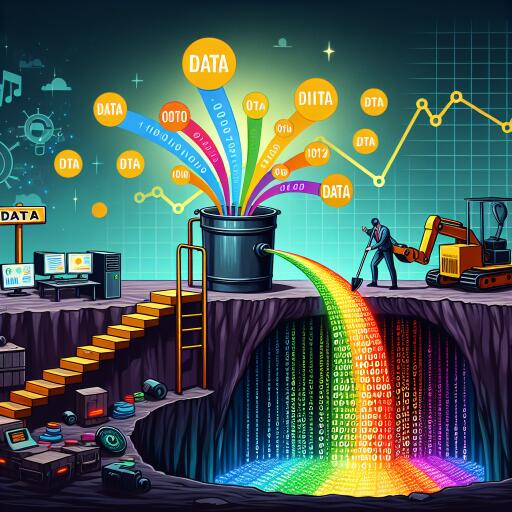Data is the New Oil: Harnessing its Power for a Resilient Career
In the digital age, where every click, search, and interaction is recorded, data has become an invaluable resource for businesses worldwide. The comparison of data to oil isn’t new, yet it has never been more apt than in today’s tech-driven economy. At the heart of this revolution are data scientists, professionals who have the skills to not just drill deep into vast digital reservoirs but also refine the crude data into actionable insights. As Artificial Intelligence (AI) continues to shape industries, the role and skills required of data scientists have evolved significantly.
The proliferation of AI and machine learning technologies has amplified the demand for adept data scientists. No longer are they confined to the backrooms performing rudimentary analyses; they are now at the forefront of decision making in businesses, playing a crucial role in extracting and interpreting the rich, valuable insights that lie buried within complex data sets. Industry leaders have identified a pressing need for refined skills in data wrangling, ongoing model maintenance, and, importantly, data storytelling.
Data wrangling, or the process of cleaning and unifying messy and complex data sets for easy access and analysis, is a foundational skill. As data streams become more varied and voluminous, the ability to effectively prepare and manage data is paramount. Similarly, model maintenance is another critical skill in the era of AI. Machine learning models, the engines behind AI applications, require regular updates and adjustments to stay relevant and accurate as new data comes in. The fluid nature of data means models can quickly become outdated, making maintenance a continuous necessity.
However, the technical prowess to manipulate data and maintain models forms only part of the skill set required for modern data scientists. Data storytelling emerges as an equally critical competency. The ability to translate complex findings into coherent insights that can inform business decisions is invaluable. It bridges the gap between data science and business strategy, ensuring that insights gleaned from data analyses have a tangible impact on a company’s direction and outcomes. Effective communication skills enable data scientists to articulate the significance of their findings to non-technical stakeholders, making their contributions all the more significant.
As AI technologies continue to advance, so too does the landscape of skills necessary for data scientists. Proficiency in programming languages like Python or R, a deep understanding of machine learning algorithms, and the capability to communicate insights and recommendations effectively to business stakeholders are now fundamental. These skills are not just beneficial for navigating current challenges but are imperative for those looking to thrive in roles that will shape the future of businesses and economies.
The trajectory of AI’s impact across industries underscores the need for a workforce that is not only technically adept but also versatile in its ability to connect data-driven insights with broader business objectives. For professionals and students eyeing a resilient career path, the field of data science offers not just immense growth potential but the opportunity to be at the forefront of technological innovation that drives real-world impacts. By acquiring and honing these essential skills, aspiring data scientists can position themselves as invaluable assets in an economy that prizes data as the new oil.
In a world where the ability to understand and leverage data determines success, honing your skills in data science doesn’t just offer job security—it provides a platform to innovate, influence, and lead in the technological landscapes of tomorrow. The message is clear: In the age of information, learning to mine data is not just beneficial; it’s imperative for anyone looking to build a resilient, forward-facing career.










